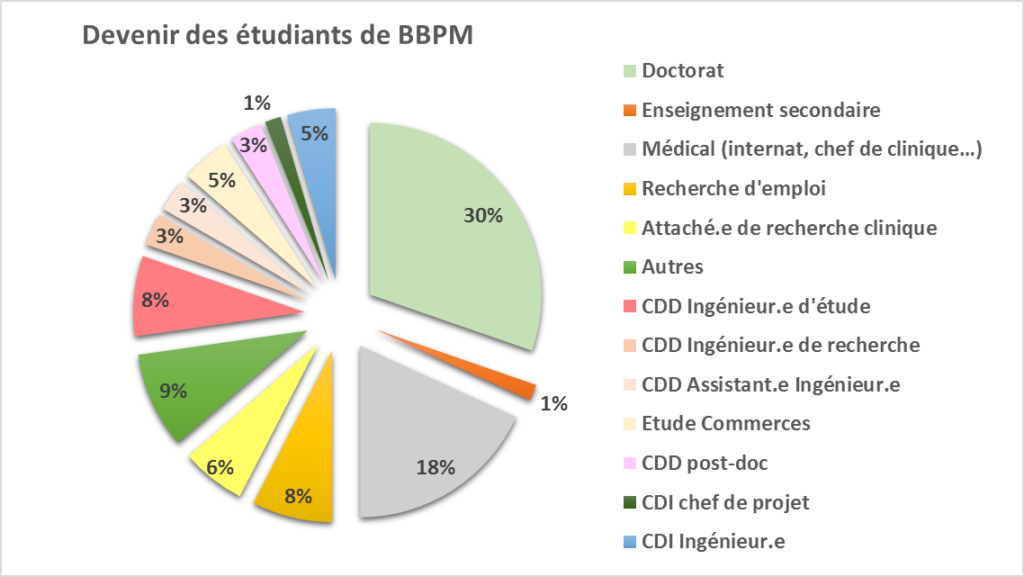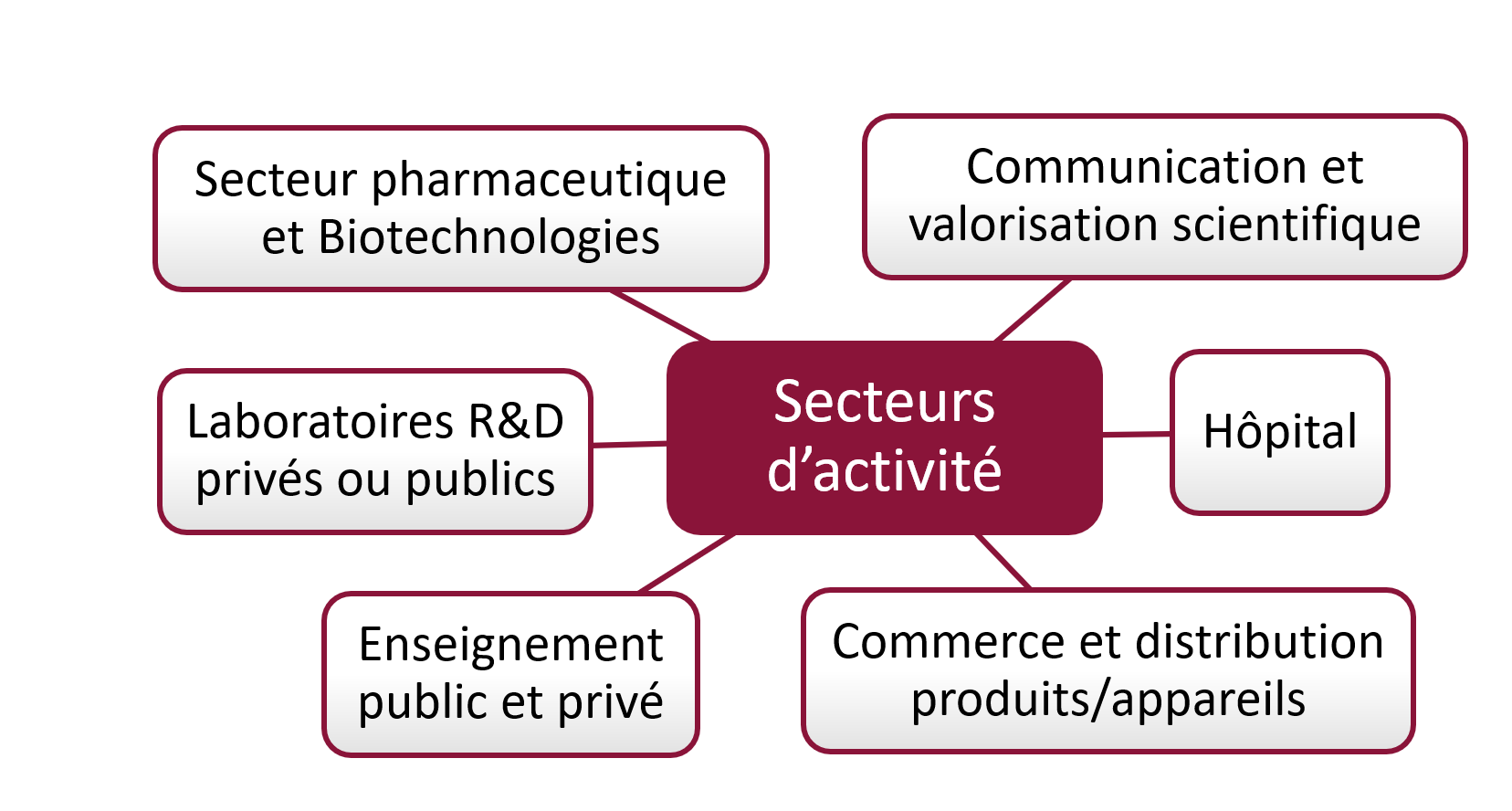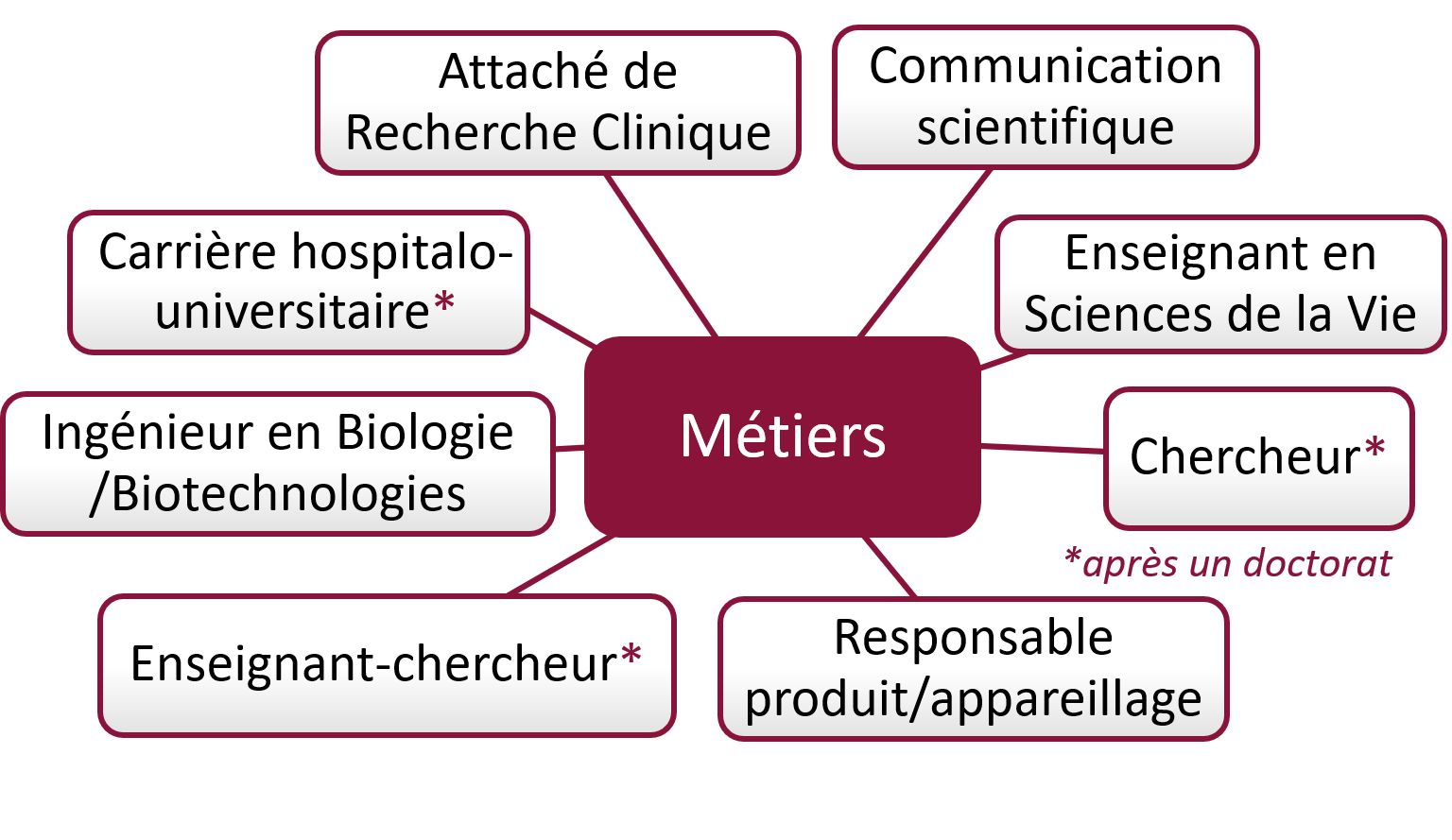Persons in charge
Jean-Marie Dupret – Fernando Rodrigues Lima

Jean-Marie Dupret – Fernando Rodrigues Lima
The Biomolecules and Molecular Biology and Pathologies program is based on a common high-level training base in molecular, structural and cellular biology. This course is a training of excellence through and in research that aims to deepen theoretical and technical knowledge in biochemistry and molecular biology in a broad perspective covering the fundamental aspects of biological macromolecules, pathological mechanisms and applications in human therapy.
The Biomolecules, Biology and Molecular Pathologies course offers two tracks:
In partnership with the National Museum of Natural History and Pasteur Institute.
This training by and for research aims to deepen the theoretical and technical knowledge in biochemistry and molecular biology covering the fundamental aspects of biological macromolecules, their functions, their pathological implications and their therapeutic applications.
Holders of a master 1
Doctor/pharmacist (research path)
Engineer or M1 equivalent degree.
18 students
Initial or continuing education
Success rate : 100%
Insertion rate >90% at two years
Good level in Biochemistry, Molecular and Cellular Biology, Structural Biology, Enzymology, Molecular Pathology and Pharmacology.
For health students: validation of UEs on the above themes.



To contribute to the design and implementation of fundamental or applied research projects in biochemistry and molecular biology
To Design, plan and carry out experimental protocols
To understand and use technologies and devices
Ability to work independently and in a team
Mastery of scientific English
Ability to produce complex written documents (projects, reports)
Ability to speak and debate
To obtain and analyze scientific data with digital reference tools
To understand and apply a rigorous scientific and experimental approach
To design and implement a research and development project
To manage and master scientific computing tools and resources
Ability to disseminate scientific information and results orally and in writing